Post lockdown, should we now move towards a gradual social and economic slowdown?
The current world, a global village -- fed by the aspiration of billions to make the current state of life better, spicier and more luxurious -- suddenly finds that it has to stop

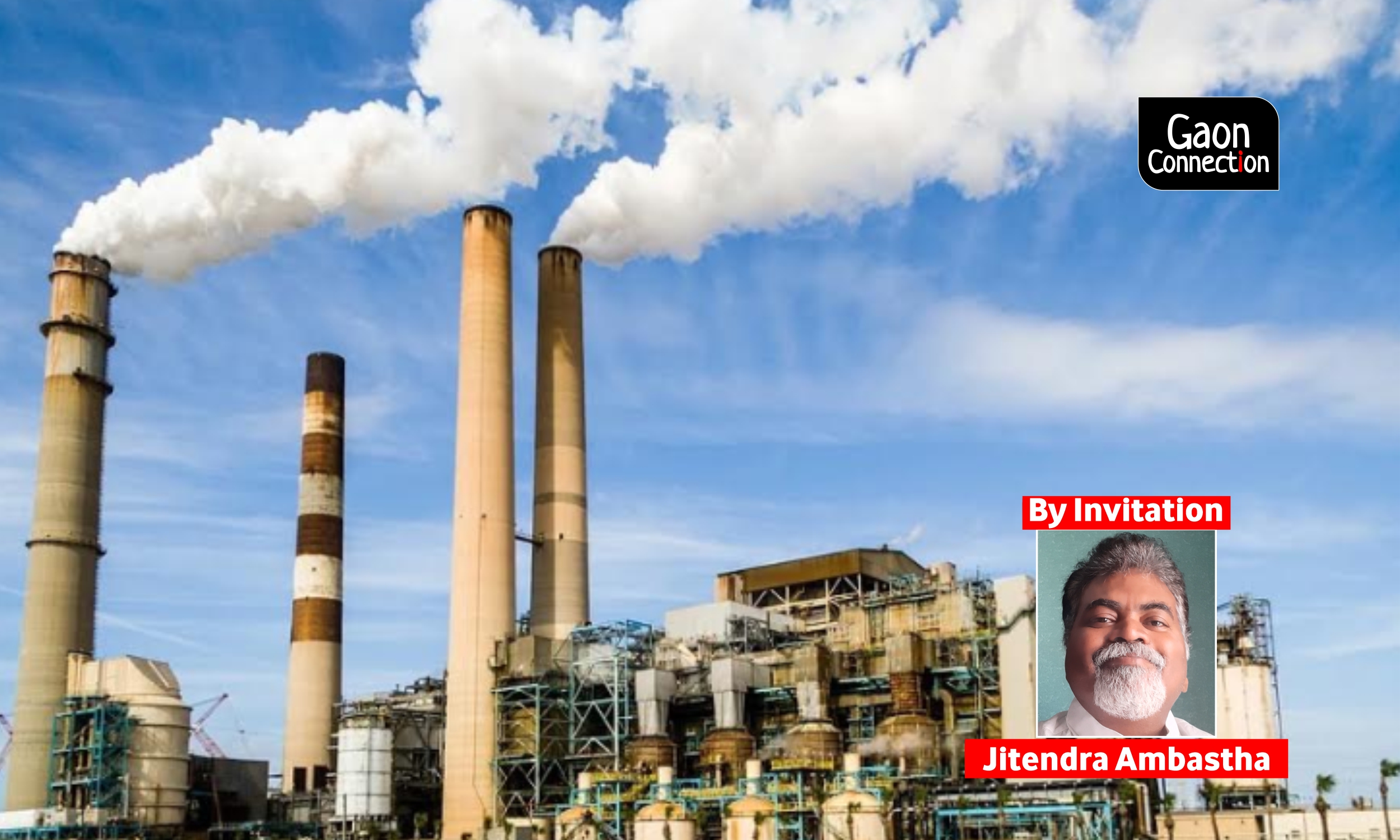
The onslaught of the COVID-19 pandemic has created an unprecedented situation. We have not encountered anything like this before. The current world, a global village — fed by the aspiration of billions to make the current state of life better, spicier and more luxurious — suddenly finds that it has to stop; it has to be under lockdown.
There was no such precedence and hence we didn’t have any guidelines to understand how to respond to this situation created by a tiny virus. However, the natural fear instinct guided the society, the governments, and the scientific community to come up with wise advice — ‘forget everything, just stay put at home. Life is more precious than anything else”.
Then, all of sudden, the killer instincts of business leaders, political leaders, and entrepreneurs sensed the loss of adrenaline that always runs in their vein to overpower others and snatch the winning spot at any cost. Now, the same community is taking a pause and thinking about how to survive this phase.
Some are more positive while some others are negative, but the sense of fear certainly runs through all of them as the outcome of the pandemic is yet to unfold. The virus is still on the prowl, and many countries are painfully suffering by putting all the resources at stake. One question everyone is wondering about is how the world will look like after the pandemic. However, irrespective of the outcome of the pandemic, can we now work towards taking a pause and moving towards a gradual slowdown? By slowdown I mean both social, and economic.
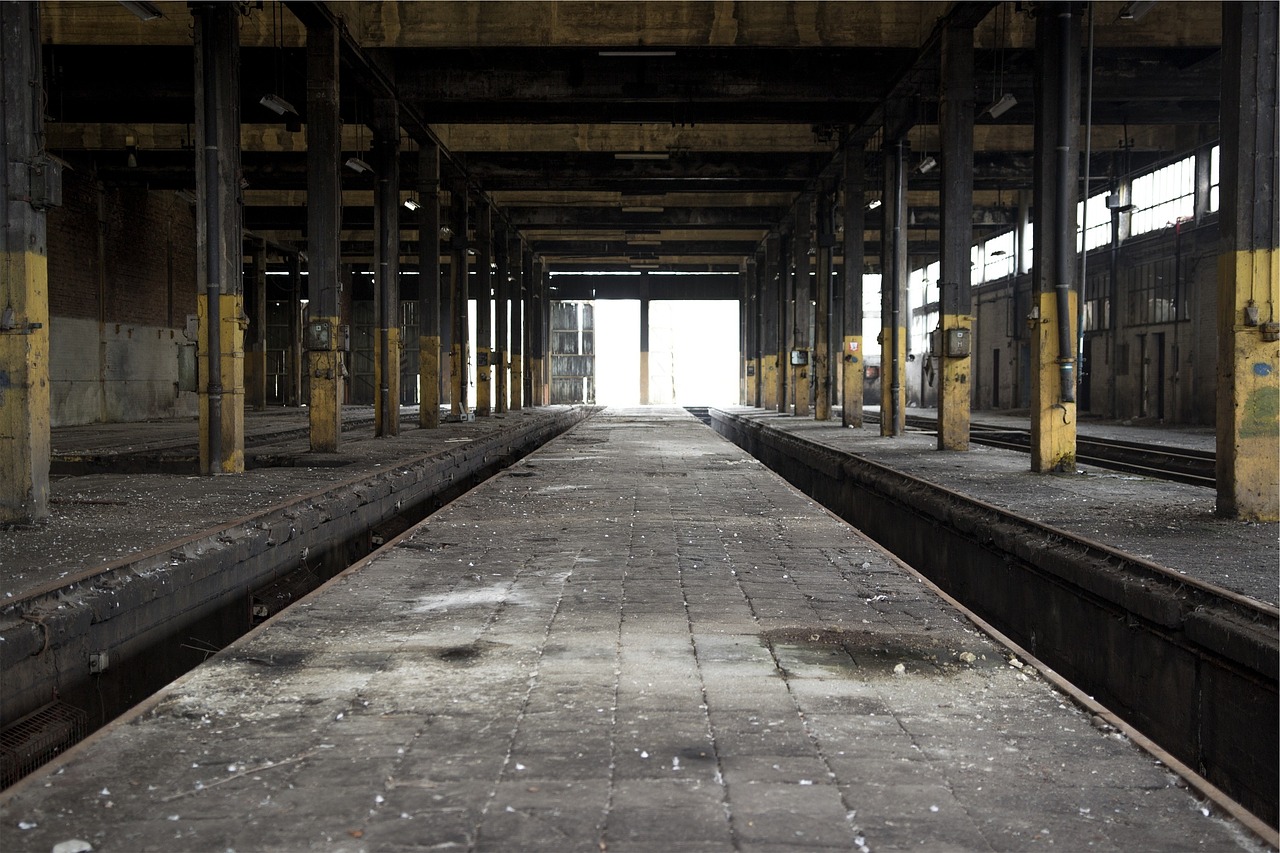
Background of economic growth – an unsustainable milestone
The answer to why a slowdown is necessary lies in the question — why to aim for an economic growth that’s coupled with unrealistic expectations and which requires us to constantly yearn for positive growth? The answer also lies in the detail of such economic growth. Hence, it’s important that we briefly trek through the convoluted path of global economic growth. Let’s have a look.
Since time immemorial, the human quest to find a more comfortable tomorrow got confused with a ‘more happy way of living’. This quest manifests the human journey from ‘Cave to Castle’. In hindsight, one does accept that these efforts were necessary to come out of the cave, create civilization and mediums of communication to live in a meaningful community. So, in a way, the human instinct to make the perceived life better is also a unique strength of human intellect and a required one. Animals and birds are largely missing this instinct beyond the basics.
So, in a nutshell, starting with the primitive and medieval tools, humans invented modern tools to increase the speed and efficiency of creating things (goods, services) that can overpower the natural growth of human beings. For example, the population is increasing at a pace of 1%, but the economic growth (measured through the creation of material and services) has to be in its multiple. In this quest, all other things remained non-important; it was all about exploiting resources and increasing the speed of human-made creation. Going back to the definition of economic growth, let’s see how the term progressed through our known civilisation.
Based on many old pieces of evidence and deliberations, the title of the ‘First Economist of the World’ goes to Hesiod. Hesiod used to live in ancient Greece during the 8th Century B.C. and was engaged in the farming activity as a farmer, and was also a contemporary poet along with Homer. Hesiod highlighted the issue of scarcity, labour, and efficiency. He said, as the earth is no more an Eden (a time when humans did not face any scarcity), human beings must work hard and achieve efficiency in agriculture/horticulture. A hard-working person was considered efficient and was known for creating more outputs. He advocated through his poems that idle as a state should be hated and is indeed hated by God as well. In summary, a farmer and a poet propounded the first economic theory.
Economic theories further got refined in the next 400 years with scholars like Chanakya, Aristotle, Plato etc. They brought in more detail and rigour in the definition and approach of economic growth. Arthashastra by Kautilya/Chanakya put emphasis on two broad objectives — resource maximization and also their optimum management; implying the methods of resource collection which may bring about maximum prosperity without killing the economic incentives. Plato also recognised the distinct nature of labour in order to increase productivity, and finally, wealth accumulation. Aristotle brought in the angle of private wealth unlike Plato, who talked about the commonwealth.
So far, in most of the economic growth theories, growth was recognised as a tool to handle scarcity and as a tool to create wealth, which was important for kings to efficiently manage its subjects. But this simplistic view started becoming more complex gradually as the human endeavour became more adventurous in order to expand their geographical/political canvass. As Kingdoms grew, so did the inter- relationship among kingdoms, which added further complexity to the dimension and scope of the economic growth. Later, inter-continental trade relationship added complexities that are beyond the control of a single stakeholder. The modern economics started with Adam Smith (also called the Father of Modern Economics), who is also credited with starting the concept of the GDP (Gross Domestic Product).
Incidentally, this was also the time of industrial revolution and mechanization, and the resulting mass production changed the whole concept of labour and productivity. Adam Smith also propounded the principle of laissez-faire. Now, several revolutions have taken place post the industrial revolution, and the scope and definition of economic growth, which started with meeting the scarcity of resources to feed people, has stretched into unknown scope at the cost of come what may.
The modern economic growth is about continuous increment in the GDP by beating the past year rate to satiate the privileges of those who can innovate something that can be made as compulsive requirements by the masses. It’s not about proportionately matching the need of the incremental population, but to further skewing the wealth in favor of fewer hands. Interestingly, the policymakers and the privileged class still quote poverty alleviation, universal food access, and life betterment of under-privileged as a strong reason to grow at a higher speed.
Is this kind of economic growth, which has an unknown target and which invents new artificial requirements so that a few privileged can see an exponential growth of wealth justified, fair? Is this sustainable as we have only one Mother Earth and the same set of natural resources that are available to us from a million years? Is this desirable?
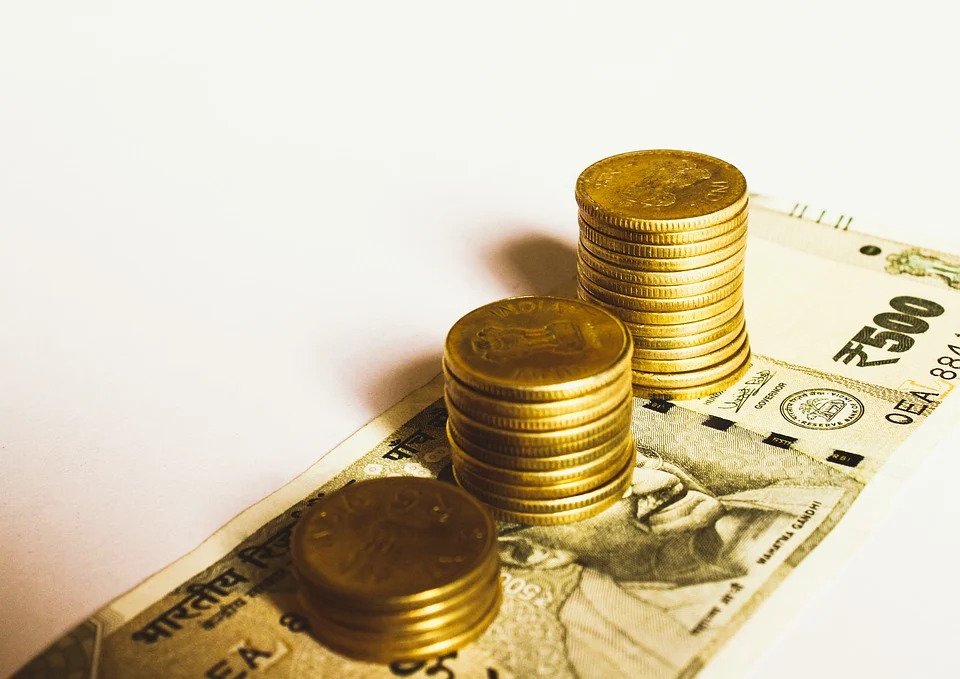
Reasons for a slowdown
In a casual chat, when someone talks about an economic slowdown, it’s considered negative. The immediate interpretation is that something is wrong in the system, which is dragging the economies. If a slowdown becomes transnational, then people start fearing of many the difficulties for human beings. Hence, coming forth of an idea with the deliberate self-driven economic slowdown, with positive reasons and for positive outcomes, may sound like a weird and a thoughtless idea for most. However, I find them so compelling, and many sane voices are in support of such an action that I am presenting some action points to accept and steer a pause and gradual economic slowdown, along with reorientation of human activities towards a more plausible path. It’s quite pertinent to put the quote here by none other than Mahatma Gandhi who said: “Earth provides enough to satisfy every man’s needs, but not every man’s greed.”
- Humanity is facing the risk of survival due to the fast-depleting natural resources triggered by an unchecked economic activity. The key ones are water and water source, natural fuels and minerals, marine life etc.
- Climate change and environmental pollution is the direct result of human-aggressive economic activity, that are likely to endanger the planet itself and hence the entire living beings
- The main source of livelihood and the root cause of economics is agriculture. The entire agriculture system is a victim of aggressive growth resulting in:
- Soil degradation
- Contamination of produce
- Wastage of food
- Excessive production with poor distribution
- Price recovery lower than production cost
- Deforestation to claim land for agriculture
- The aggressive economic activity, coupled with population growth, has resulted in massive urbanization and expansion of industrial activities. This has resulted in
- Deforestation in large scale thus endangering the planet and the bio-diverse ecosystem
- Massive pollution rendering rivers dead and sea/ocean polluted
- High level of air pollution making the cities unlivable
- Encroachment of agricultural lands and wetlands
- The exploitation of sand beds and hills for the construction work thus endangering the natural ecosystem
- The notion of continuous economic growth in limited resources with an unlimited goal is not sustainable
- Continuous growth does not imply the overall well-being of the human population. Only a handful take away the maximum benefit of economic surplus generated in the process of growth. Hence it increases inequality
- The onslaught of the pandemic is also giving a signal that the pursuit of overpowering nature can be foiled with just one strike. COVID-19 has made human beings helpless and forced to realise that life is most important and most of the material accumulation can be lived without.

Executing the slowdown
The decision to pause, look back, and gradually slow down life is romantic only in theory that too only a handful can even imagine this. However, nature can do anything. The virus has forced humanity to pause and slow down, albeit presumably, for a very short period of time. In this short period of 35-45 days, the entire natural ecosystem and its habitat (except human beings) have been rejoicing the space ceded by the humans. There are reports that world-over, rivers, birds, flowers, butterflies, marine and wildlife have come to life. The challenge is however, how do human beings step back in normal days and adopt the slowdown in a deliberate and calibrated move. I list below a few pointers that can be validated and developed into models to execute a gradual slowdown:
- Global reforms in agriculture by phasing out the use of chemicals and pesticides in agriculture and pushing organic farm/village-based solution as an alternative
- Promoting cottage industry clusters in and around villages
- Bring barriers for large scale manufacturing to protect smaller units and cottage industry
- Bring cap on premiums paid to smarter people whether it is salary or dividends. People get huge premiums for some delta of wisdom or/and efficiency. Sanity needs to prevail.
- No developmental permission at all if it’s bad for any environmental factor
- Ban on dangerous goods meant for ultra-comforts like air conditioners, reduce the polluting vehicle drastically, find an alternative to refrigerators
- Reduce retirement age to 50 or a more agreeable one. Post-50 let people work on a voluntary basis to revive nature
- Drive reforestation on a big scale to give back the space snatched from forests
- Drive to stabilise the human population and then bring down to say 1950 level
- Global collaboration (not competition) to protect the environment, to promote equality with basic life requirements protected, instead of product transfer technology transfer should be promoted for local self-reliance
- Global awareness campaign with regulations to bring behavioral change that encourages individual/Institutional/community nature compliance
- The government should realign its energy in reducing the filthy premium paid to efficiency and bringing equality (at least to a benchmark level) among people. Human Equality Index, Nature Solvency Index, and other environmental indicators should be the new measurement of national achievements
- Technological innovations should be encouraged only to promote Rule of Nature not Rule Technology as we have already started implementing AI, ML, and robotics where even human beings are rendered useless.
- The displaced workforces from industries and urban activities need to be gradually moved into agriculture and allied cottage industry in and around villages especially in a country like India.

The conclusion and the road ahead
I strongly feel that in order to ensure the orderly functioning of the planet and to save humanity from mass destruction, we need to accept a slowdown and re-alignment of human activities. Also, re-orientation of economic thought from the existing demand and supply creation (at mindless pace) to thinking how to coexist with nature could bring a complete change in the entire process of thinking, processing, and delivering. As many say, better we embrace change ourselves than waiting for a more deadly pandemic or a natural disaster that can take away everything in a moment.
As a beginning, the concept of slowdown needs to be discussed and refined at an individual, societal, and governmental level. This is regressive, but the place where we have reached is aggressive enough to sink us altogether, so better step back.
Reflection through some data
While the comments in previous sections are based on observation, experience, and some factual analysis, I am also posting below some data/graphics to reflect on the economic growth’s outcome for humanity and nature at large. Going through these data points one is forced to ponder and question, increasing economic growth for whom?
An excerpt from Forbes.com
“According to the Institute for Policy Studies (USA), billionaire wealth has boomed, while over 26 million people have filed for unemployment since mid-March. The percentage of taxes paid by billionaires has fallen 79% since 1980. From the start of March to now, the group of billionaires’ total wealth has increased by $308 billion. Billionaires boast a combined net worth of $3.229 trillion and their collective wealth skyrocketed up 1,130% between 1990 and 2020.” This is despite the fact that the economy is expected to contract by 40 per cent this quarter.
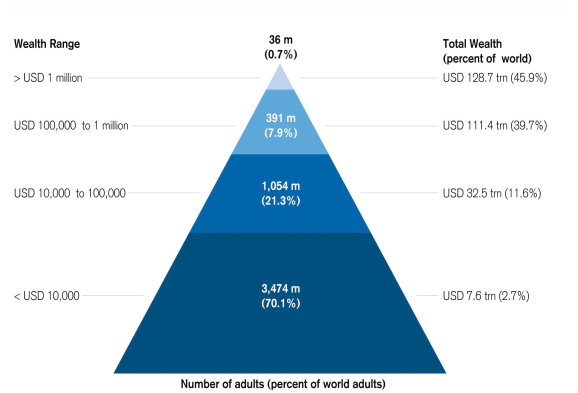
The global concentration of wealth. Does economic growth mean this kind of pyramid? In the name of poverty alleviation, the truth is scary.
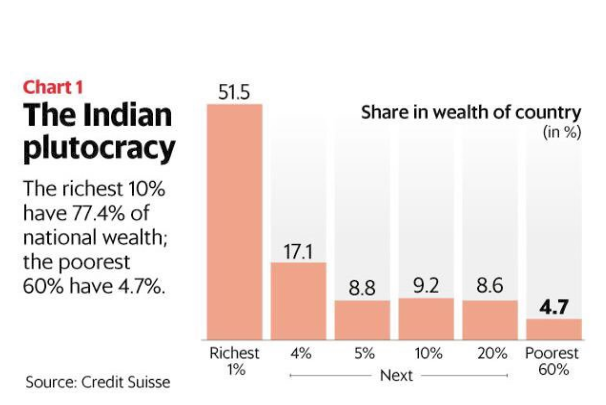
The concentration of wealth in India. Same story 1 % holds 51 % of the wealth
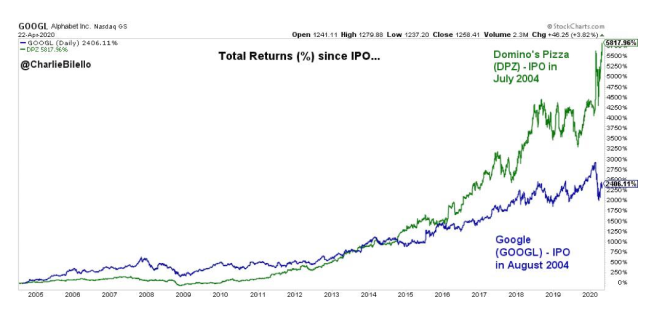
See the market price growth of these companies in the last 15 years: is it exciting or scary?
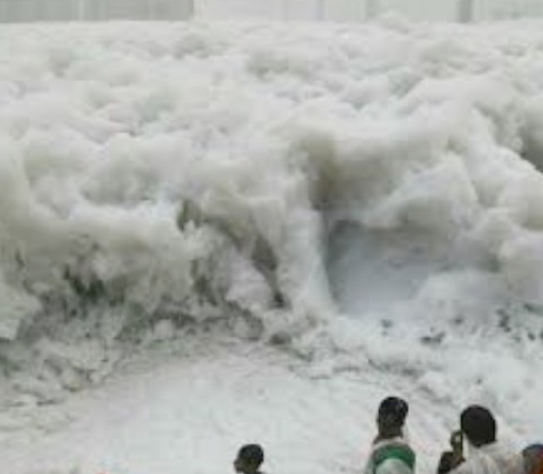
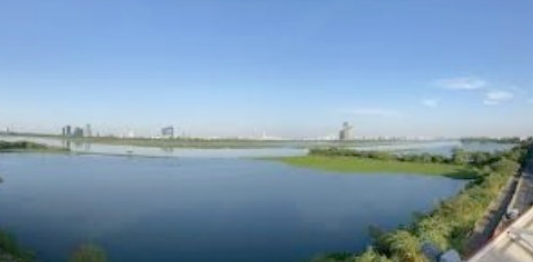
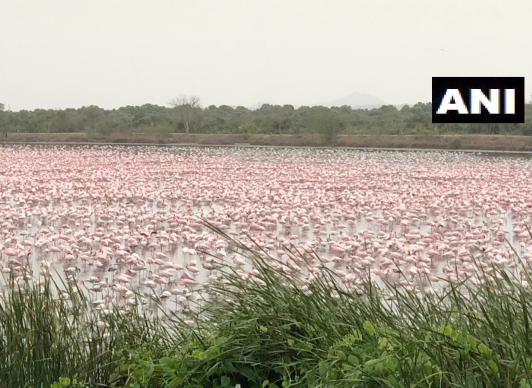
Conclusion: Let’s think about a few famous quotations:
“Earth is what we all have in common.” —Wendell Berry
“We are in danger of destroying ourselves by our greed and stupidity. We cannot remain looking inwards at ourselves on a small and increasingly polluted and overcrowded planet.” —Stephen Hawking
“The truth is: the natural world is changing. And we are totally dependent on that world. It provides our food, water and air. It is the most precious thing we have and we need to defend it.” —David Attenborough
“What we are doing to the forests of the world is but a mirror reflection of what we are doing to ourselves and to one another … ”—Mahatma Gandhi
All these people above are known for their understanding of humanity and achieved a high degree of trust through their work/action in the society. It is high time we understand their teachings and concerns. While this write-up may not be perfect in eliciting logical reasons or in providing a solution, yet it gives some elementary sketch to build a consensus model to save humanity along with larger planetary habitat.
Jitendra Ambastha is based out of Navi Mumbai. He has 28 years of professional experience in banking, asset management, and IT consulting, and is interested in farming and rural ecology

